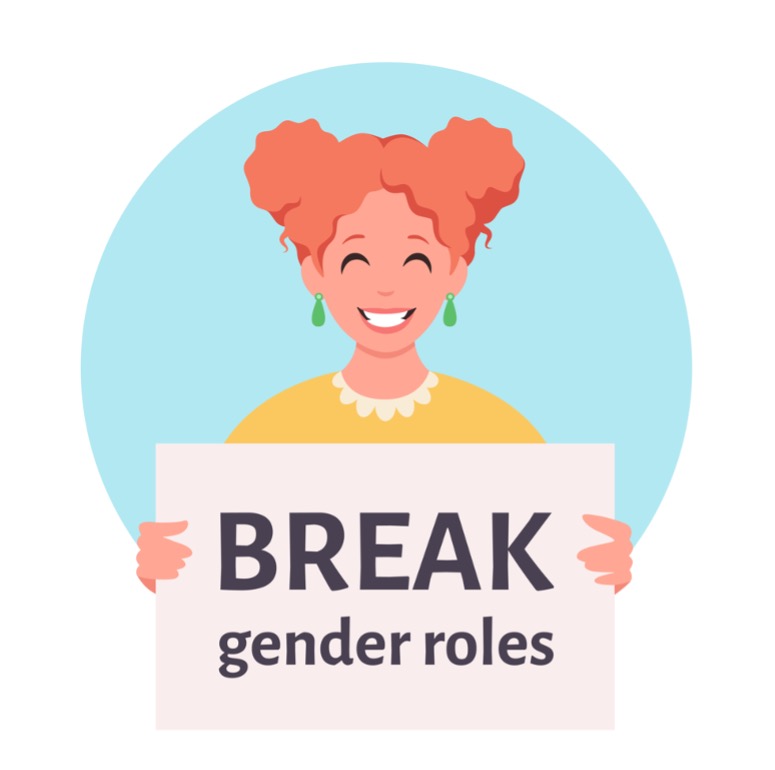- Home
- Resource Center
- Articles & Videos
- Boardroom Beat #10: Breaking Rules on Empathy - Gender Norms be Damned
12 April 2022
| by i3 Coaching
Boardroom Beat #10: Breaking Rules on Empathy - Gender Norms be Damned
Sign up here for our newsletter on globalization and localization matters.
In this era of defied gender norms and shattered glass ceilings there is an area lagging equivalency. Female executives are expected to be more empathetic.
Anecdotal evidence from i3 Coaching sessions indicates a trend of frustration amongst female leaders who are expected to have more time and capacity for empathy than male counterparts. Originally called upon by the need to support staff through COVID and through organizational pivots, new surges of need include transitions back to the office and the wooing of team members to ebb the flow of the great resignation. To be fair, these realities impact all managers of all demographics. But female leaders report feeling more pressure than male counterparts to access interminable bandwidth with an infinite supply of compassion and grace.
Is “EI” Emotional Intelligence or Incontinence?
Client after client, jour after jour, female leaders focus coaching sessions on maneuvering the expectation that they should be unequivocally available as sounding boards and empathy faucets. Though not bereft of empathy, many of my female executive clients gravitate more toward analytics, problem solving, efficiency, action.
DOing Empathy vs. BEing empathetic
Differentiating between what one is expected to BE and replacing it with what one may DO is a powerful perspective shift. Implementing a behavior and taking an action is the map for doing empathy. For some it is a more navigable approach.
1. It is not required to “feel” the pain of others. What matters is to care that they feel it.
2. Do this by being present and indicate that they are heard. “I hear you.”“How are you managing?
3. Express support. “What may I do to help?”
4. Encourage ownership of a path forward “What is one thing you can do now?” “What is a path forward?
In Soft Skills for Hard People Dr. Helena Kim states “Doing empathy is safer, simpler, and much quicker than feeling empathy …. It's a form of clean boundaries. It can also be a relief to those whose personalities are more logical, rational, or cerebral.”
The Tough Love Option
The approach of doing empathy makes this soft skill accessible. The bigger challenge is when to opt instead for tough love. This choice requires the nuanced soft skill of accessing intuition to strike the right balance based on the situation.
Recently a coaching session was a safe place for a client to process the emotions of being exited soon after learning the news. I listened and encouraged “It is OK to hurt; you need space for that.” But the space the client needed was not the entire session. In the course of one hour, we transitioned to their specific plans for soul restoration, finishing well, internal and external messaging, caring for the team, next opportunities. The coaching session report had four recommendations, and the first one was tongue in cheek idiom: “Suck it up, Buttercup.”
In this real-life example client cues guided my transition from empathy to action. In what world would it be a good choice to send a client grieving the loss of a role the written recommendation to “Suck it up, buttercup?”
It was the right choice in my world with that client, that day, in that moment. Empathy rule broken, gender norm damned.

Empathy: The New Frontier of Feminism
Gender equality has come a long way as perceptions of females being “less than” have eroded. The remaining feminist frontier is the realization that positive traits normed as “female” are also gender agnostic. I coach executive males who are empaths. I coach female leaders who work with intention on developing soft skills and conveying warmth. Gender notwithstanding, we are all works in progress, continually improving hard and soft skills.
Do you want to contribute with an article, a blog post or a webinar?
We’re always on the lookout for informative, useful and well-researched content relative to our industry.

Shelly Priebe
Since 2010 Shelly has consulted and coached companies of all shapes and sizes, ever finding herself in the midst of disruption. In 2018 she was on the core team of a start up tech company on mission to address the disturbing trend toward digital isolation. These days she finds herself fueling a (R)evolution with corporate clients dedicated to the democratization of coaching, an inclusive initiative intended to diversify the face of tomorrow's leaders. She was the co-chair for the 2020 ATX Global Leadership Summit. Shelly delivers iPEC's Core Energy Coaching™ methodology to create awareness and shifts in the energy that feeds thoughts, emotions, and actions. She is certified in Insights Discovery™ and Energy Leadership Initiative™ assessments. In 2020 Shelly elevated her “inner introvert” and relished more time in her Tree House office overlooking Lake Austin. Her dogs rejoice that their daily trail runs are not interrupted by her travel. While she wears many hats, “Mom” of four age range 13 to 26 is her favorite.


